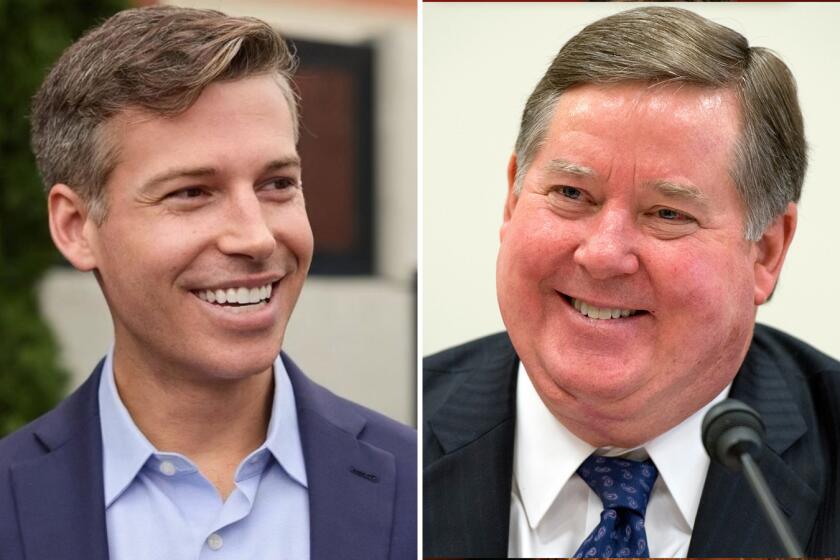Florida Sen. Marco Rubio is Trump’s pick for secretary of State

WASHINGTON — Marco Rubio, the combative and hawkish Republican senator from Florida, officially became President-elect Donald Trump’s pick for secretary of State on Wednesday.
Rubio, the son of Cuban immigrants, was once a challenger to and critic of Trump, but has become a staunch defender and campaign surrogate. He was considered as Trump’s running mate, a post that eventually went to Vice President-elect JD Vance.
“He will be a strong advocate for our nation, a true friend to our Allies, and a fearless warrior who will never back down to our adversaries,” Trump said of Rubio in a statement.
Trump made the announcement while flying back back to Florida from Washington after meeting with President Biden.
Rubio, 53, has strong foreign policy credentials, having served on the Senate Intelligence and Foreign Relations committees. Most recently, he was the ranking Republican on the Senate subcommitee on Latin America. Many of his opinions echo those of Trump.
Rubio is a hardliner on issues involving the leftist governments of Cuba and Venezuela, and also on Iran. He mirrors Trump’s stated stance on China; for years he advocated for the toughest possible approach to Beijing, from political and economic sanctions to trade tariffs.
He is expected to oppose rapprochement with Iran and any resurrection of the historic 2015 Iran nuclear deal, signed by President Obama but jettisoned by Trump in his first term. That in turn led to Iran’s steady pursuit of nuclear power and what many experts claim is the possibility of building a nuclear bomb in the not too distant future.
Rubio is also a veteran lawmaker with legislative skills that could prove useful to Trump. And given his many friends and allies on Capitol Hill, his Senate confirmation should come easily.
If confirmed, Rubio would become the first Latino secretary of State and probably highest ranking Latino in the Trump administration. His parents immigrated to the U.S. from Cuba a few years before the revolutionary victory of Fidel Castro.
When Rubio and Trump competed for the Republican nomination in the 2016 presidential race, the future president repeatedly belittled the Florida senator as “Little Marco.”
But like so many once-traditional GOP stalwarts, Rubio gradually shifted his public beliefs to align more closely with Trump’s. Though he once advocated for a robust U.S. presence in the world to challenge the likes of Russia, he is now telling Ukraine to negotiate with the country that invaded it two years ago, even if it means forfeiting territory.
“I’m not on Russia’s side — but unfortunately the reality of it is that the way the war in Ukraine is going to end is with a negotiated settlement,” Rubio told NBC News in September.
He was also one of 15 Republican senators to vote against a $95-billion military aid package for Ukraine, Israel and other U.S. partners, passed in April.
Rubio is an unabashed defender of Israel. He even lobbied against a cease-fire in the 13-month-old war between Israel and Hamas in the Gaza Strip, and once likened Israel’s broadly destructive pursuit of Hamas militants to the World War II Allies’ pursuit of Adolf Hitler.
A pro-Israel ideology will fill much of Trump’s administration, as it did the first time around.
On Tuesday, Trump announced the appointment of former Arkansas Gov. Mike Huckabee as U.S. ambassador to Israel. Huckabee is an evangelical Christian minister who leads tours to Israel and has questioned Palestinian claims to disputed land.
As senator for 23 years, Rubio has championed human rights selectively, speaking out in defense of the Muslim minority Uyghurs in China, but not, for example, minority Shiite Muslims in Saudi Arabia, a conservative U.S. ally and autocratic nation.
Last year, Rubio led a group of far-right Republicans who fought Biden administration efforts to preserve democracy in Guatemala and ensure a peaceful transfer of power after voters in that country elected a leftist as president. Rubio and his allies favored Guatemala’s entrenched right-wing elite long associated with the country’s notorious military.
More to Read
Get the L.A. Times Politics newsletter
Deeply reported insights into legislation, politics and policy from Sacramento, Washington and beyond. In your inbox three times per week.
You may occasionally receive promotional content from the Los Angeles Times.











